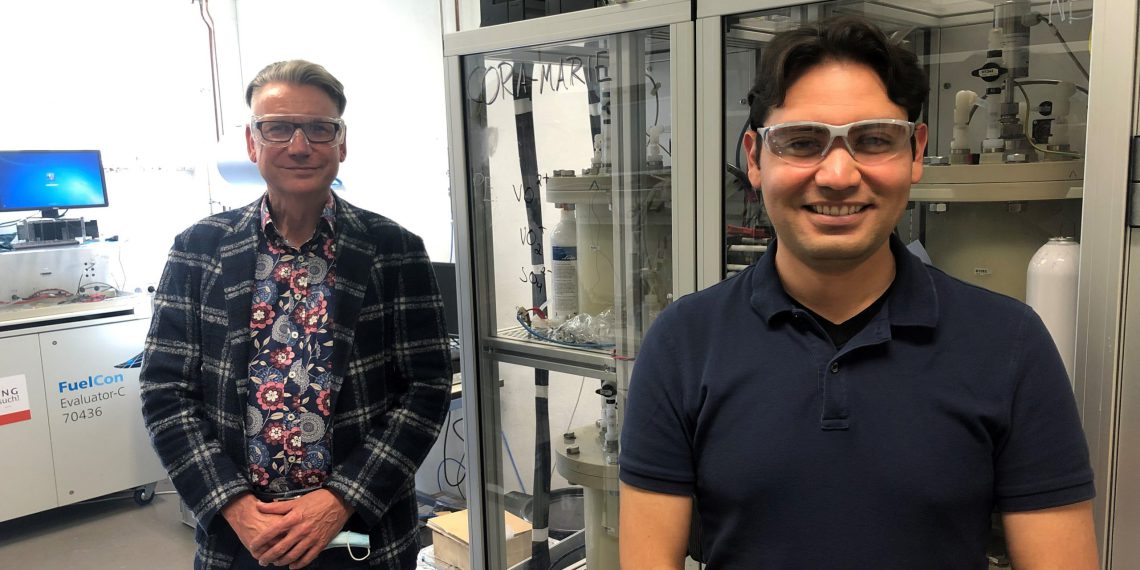The so-called redox flow batteries (RFB) represent a promising concept for the storage of renewable electrical energy. In this type of battery, which is particularly suitable for stationary applications, the energy is stored in tanks with liquid electrolytes, while the power is determined by the area of the cells. RFBs based on vanadium salts as the energy carrier are particularly well developed. They are already used in numerous plants. However, vanadium also accounts for a significant proportion of the total cost of the battery, so cheaper alternatives are being sought.
One possibility is the transition from metal salts as energy carriers to organic molecules. Because of the wide variety of possible compounds, some of which can be produced from renewable raw materials, organic RFBs have been the subject of intensive research for several years. An important issue still to be resolved is the long-term stability of the organic energy carriers, which, unlike inorganic salts, can decompose during the electrochemical processes. A whole series of scientific questions also remain to be resolved with regard to the details of the processes at the carbon electrodes.
Over the next two years, Luis Fernando Arenas will be investigating organic redox flow batteries in Professor Thomas Turek’s research group at the Energy Storage Technologies Research Center (EST) of the Clausthal University of Technology in Goslar. Various projects on the development of vanadium-based RFBs have been carried out there in recent years, and the working group has extensive test facilities for measuring the performance data of RFB components such as electrodes, membranes and bipolar plates. The principles and methods developed in this work will now be applied to organic redox flow batteries.
Luis Fernando Arenas is a technical chemist who earned his master’s degree in 2013 from the University of Coahuila in Mexico. He then moved to the University of Southampton, where he obtained his PhD in 2017 in the renowned research group of Professor Frank C. Walsh with a thesis on RFB based on zinc and cerium.
Since then, he has continued as a visiting scientist at the University of Southampton and is a member of the Executive Committee of the Electrochemical Technology Group of the Society of Chemical Industry. He is also involved with the National Institute of Electricity and Clean Energy (INEEL) in Cuernavaca, Mexico, and consults for companies in the electrochemical industry, including chlor-alkali companies in Monterrey, Mexico. In 2019, he was awarded the Schwäbisch Gmünd Prize of the European Academy of Surface Technology.

















